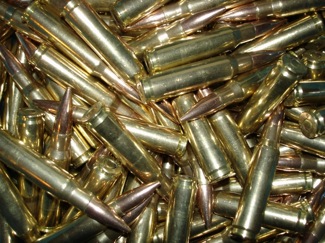
By Dave Workman | Editor-in-Chief
A stay against a federal district court ruling that struck down California’s background check requirement for ammunition purchases will almost certainly be challenged, according to attorney Chuck Michel, lead counsel in the case of Rhode v. Becerra.
Last Thursday, U.S. District Court Judge Roger Benitez ruled the state’s ammunition check requirement violates the Second Amendment. The sate moved quickly, initially asking the judge for a stay pending an appeal, but Judge Benitez denied that motion Friday afternoon. Attorney General Xavier Becerra then raced to the Ninth Circuit Court of Appeals in San Francisco, which late Friday evening did grant the state’s emergency motion for a stay, pending further court order, as noted in a timeline of the case posted online by the National Rifle Association.
Michel told TGM he expected to be filing a motion to vacate the Ninth Circuit’s administrative stay, and oppose the state’s request for an emergency stay. Those actions could come quickly.
All of this comes as part of a larger legal war suddenly being fought on several fronts. The Second Amendment Foundation, Firearms Policy Coalition and National Rifle Association have all been busy since the onset of the COVID-19 outbreak, battling administrative shutdowns of firearms retail businesses as “non-essential” in several jurisdictions.
At a higher level, SAF now has submitted four gun rights cases to the U.S. Supreme Court for review, which apparently is not lost on Associate Justice Brett Kavanaugh, weighing in on the court’s decision to moot the challenge of a now-defunct law in New York City that prohibited handgun owners from taking their licensed handguns outside of the city, even to secondary residences.
While he concurs with the court majority to moot the case, brought by the New York State Rifle & Pistol Association, Justice Kavanaugh acknowledged the frustration of fellow Associate Justice Samuel Alito that state and lower federal courts are not properly applying the Heller and McDonald rulings when deciding gun rights cases.
“The Court should address that issue soon,” Kavanaugh wrote, “perhaps in one of the several Second Amendment cases with petitions for certiorari now pending before the Court.”
The four SAF cases to which Kavanaugh was apparently alluding are Rodriguez v. City of San Jose; Pena v. Cid, Culp v. Madigan and Mance v. Barr. The Mance case involves SAF’s sister organization, the Citizens Committee for the Right to Keep and Bear Arms as a plaintiff.
Justice Alito presented a spirited dissent spanning 31 pages in which he dissected the city’s now-former law and the reasoning behind it as weak.
Alito wrote: “In sum, the City’s travel restriction burdened the very right recognized in Heller. History provides no support for a restriction of this type. The City’s public safety arguments were weak on their face, were not substantiated in any way, and were accepted below with no serious probing. And once we granted review in this case, the City’s public safety concerns evaporated. We are told that the mode of review in this case is representative of the way Heller has been treated in the lower courts. If that is true, there is cause for concern.”



